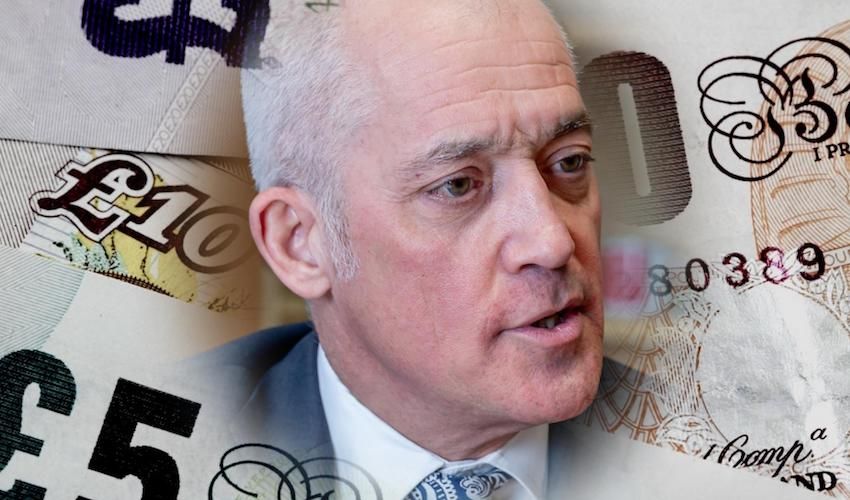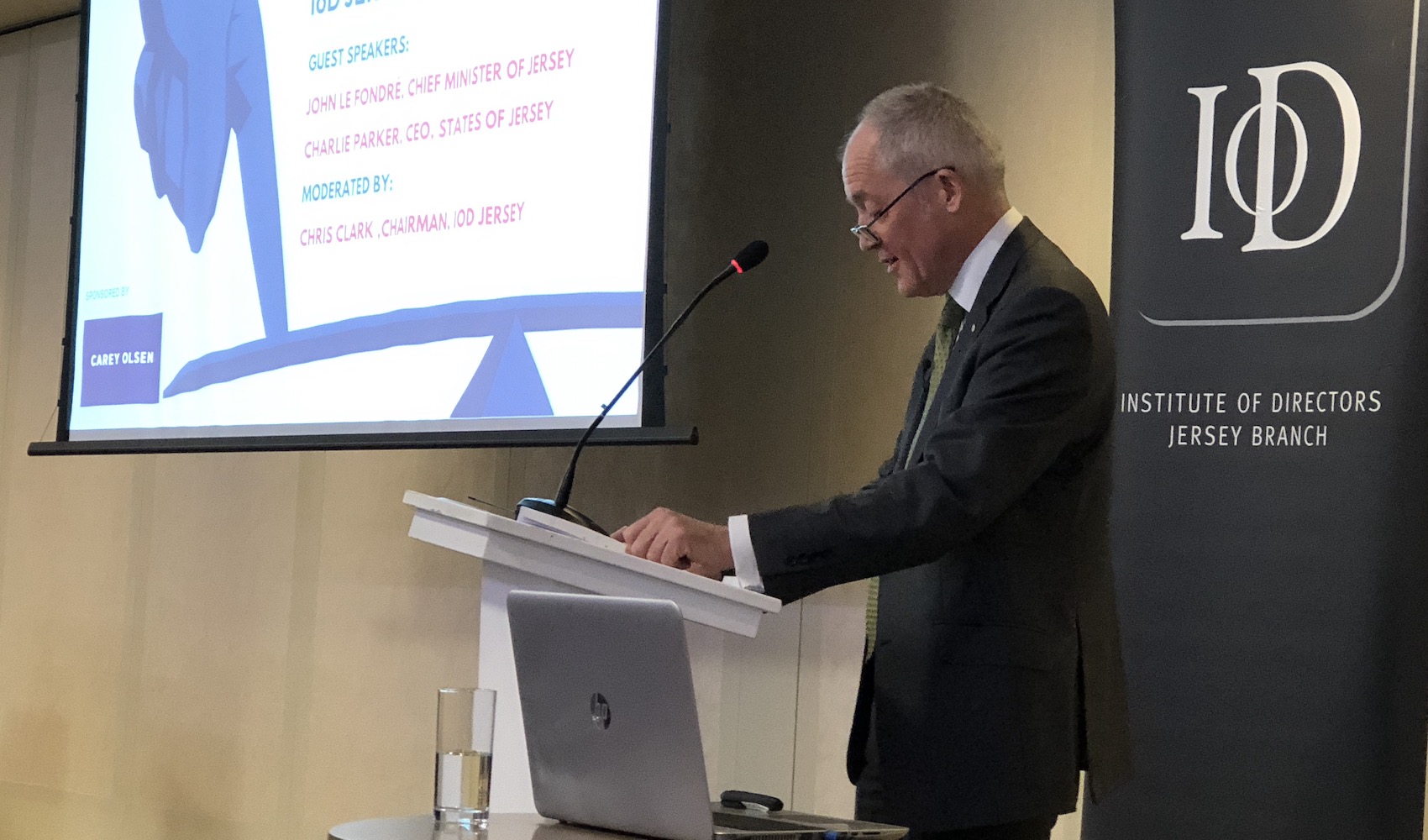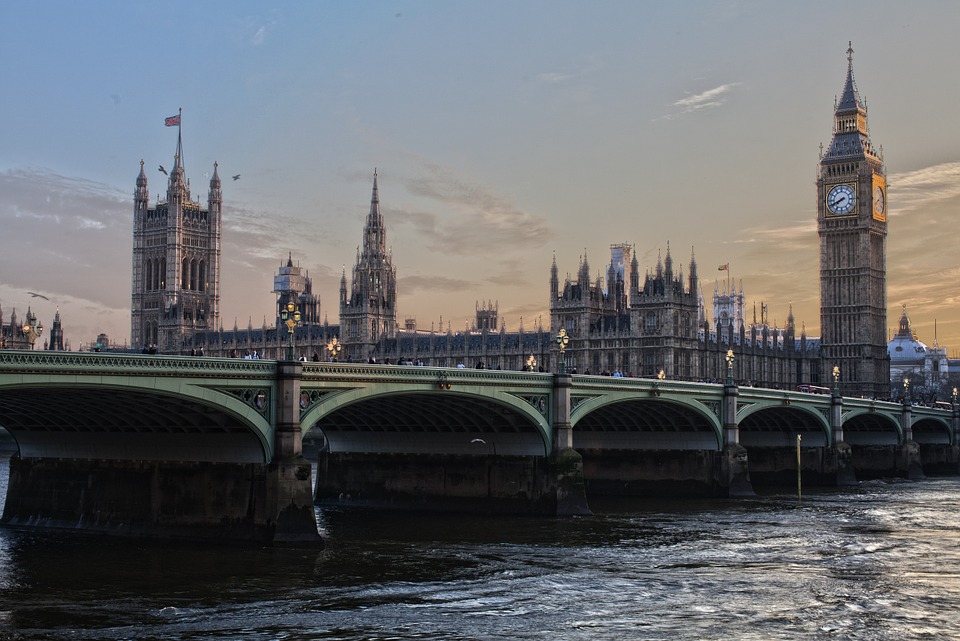

Islanders shouldn’t be fooled by the “couple of noughts” – there is not enough money in Jersey’s ‘rainy day fund’, the government’s Chief Executive has warned.
The comment from Charlie Parker came following a report by the Fiscal Policy Panel – a group of independent economic advisors, who advised of a potential post-Brexit “supply shock”, the economic perils of an ageing population and the island’s Strategic Reserve not being well-funded enough to weather a finance industry collapse.
Speaking before a room of the island’s top executives at the Institute of Directors mid-year review yesterday, Mr Parker called for “forward-thinking” and “modern” working to prepare for any blows to the island’s key industry.

Pictured: Mr Parker addressing the audience of IoD members yesterday.
“We have to be prepared for shifts in the global markets. That will mean that capital is very portable. Investment decisions get made in very different ways now, and they are not locality-based - they’re based on a jurisdiction’s wider offering.”
Amid these challenges, which he said also include Brexit, he said the island shouldn’t be complacent about the state of the Strategic Reserve, which between 2009 and 2017 had £340million withdrawn from it to balance the government’s finances. There have also been plans to fund the construction of the Future Hospital by using money from what is widely regarded to be the island's emergency supply.
He continued: “People talk about the rainy day fund because it’s got a couple of noughts in it that it’s enough. Actually, I said right from the beginning that I felt that it was under-capitalised. Treasury has felt that as well, and this government recognises that it is going to have to do something.”
The FPP report also touched on the challenges brought by the recent House of Commons push for transparent company ownership in Jersey, describing it as a “regulatory risk”.
This topic was picked up at yesterday’s IoD meeting by Michael Hancock, General Counsel of HSBC. Given that 88 MPs – among which he said there were some “serious names” – are now backing the change, even though it could trigger a "constitutional crisis", he queried whether the island needed to “change tack” with regards to its opposition.

Pictured: The FPP described the House of Commons recent push for a beneficial ownership register as a "risk".
But the Chief Minister, Senator John Le Fondré, who was also in attendance at the breakfast briefing, remained firm that the island would impose public registers of company owners once it became an “international standard” – not at the present moment.
Mr Parker also touched on the island’s reputation with regards to transparency, later describing the island’s removal from the EU’s 'tax haven greylist’ as a “vindication”.
While the FPP’s report analysed theoretical shocks to the island’s finances from a finance industry collapse and even natural disasters, the most immediate threat discussed was Brexit, which is now little over a week away.
Without an agreed deal on the table, they warned of a spike in prices hitting islanders – and the wider economy – hard in the pocket.
“Inflation in Jersey is strongly correlated with inflation in the UK and therefore a no-deal scenario is likely to also see a spike in Jersey’s inflation rate. With significant imported inflation (referred to as a “supply shock”), the spending power of Islanders would fall and cause a shortfall in demand for non-exported production in turn leading to downward pressure on growth and jobs," the report said.

Pictured: A 'No Deal' Brexit could shock the island's economy.
It continued: “Whilst this will likely result in less overall recessionary force than in an export- restricted UK, a fall in the level of Jersey’s GVA of 4.5% or more (in relation to current expectations) with a disorderly Brexit is plausible. The Panel will continue to monitor developments in the Brexit process, and the impact this is likely to have on Jersey’s economy.”
A spike in inflation could also have wider implications for government spending on public sector staff, with the current pay deal put to workers for 2020 at a rise of 1.3% plus the inflation rate.
Comments
Comments on this story express the views of the commentator only, not Bailiwick Publishing. We are unable to guarantee the accuracy of any of those comments.